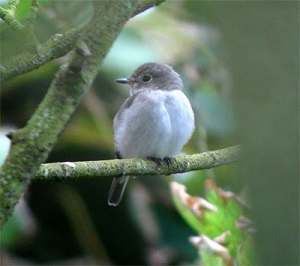No need to head to the movie theater or download the video game app: Angry Birds can be found right in your backyard this summer–if you live in the suburbs, that is.
Tech researchers recently found that birds that live in suburban areas exhibit significantly higher levels of territorial aggression than their country counterparts..
“A possible reason for this is that these birds have less space but better resources to defend,” said Scott Davies, a postdoctoral associate in biological sciences. “Living near humans provides better food and shelter, but it also means more competition for these limited resources.”
Davies and co-author Kendra Sewall, an assistant professor of biological sciences, measured territorial aggression in 35 urban and 38 rural male song sparrows at three rural and three urban sites.
The researchers placed small leg bands on the birds to identify individuals, and recorded each individual’s responses twice, several weeks apart. The suburban birds were more territorial on both occasions, showing that their increased aggression persists throughout a breeding season.
The researchers’ observations shed light on the effects of human population expansion on wildlife. The world population is projected to reach 9.6 billion by 2050, according to the United Nations, increasing by more than 2 billion people. Though many animals avoid habitats that are impacted by humans, some species can adjust and live in suburban and even urban habitats.
“This finding supports past research showing that urban birds are more aggressive in defending their territories,” said Dr. Kiki Sanford, neurophysiologist and, who was not involved in the study. “We need to understand widespread behavioral differences between various species of urban and rural bird populations to get an idea of how urbanization will affect their survival and diversity in the future. Testosterone and population density are the usual predictors for aggression, but there are other influential factors like increased food availability in urban environments that need to be examined.”
“Predicting the impact that human population growth will have on wildlife requires studying the species that adjust and persist in human impacted habitats,” said Sewall. “Suburban sprawl is a primary form of human habitat change and though many species can survive in our backyards, their behavior and physiology may change to cope with shifts in resources and with new disturbances.”
Source: Science daily
N.H.Kh

